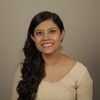Photo by David Shankbone via Wikimedia Commons
Advertisement
Advertisement
"The world is not made for us, so don't do anything to upset the world," 20-year-old New York City resident Nancy Uddin's father said to her.
Advertisement
Advertisement
Advertisement
Although this was an anomalous experience among the respondents, Amina Foda, a graduate student who also lives in New York, said that "the talk" she got from her parents was actually rather optimistic."It was made clear to me that I was different from my peers because I was Muslim and Egyptian—and that difference is what is valuable and deserves to be treasured and protected," she told me. "I was raised to be proud of my minority identity but the disadvantages of what that minority experience were not discussed explicitly."The line between pride and fear is one many fear having to draw for their children.One respondent described hugging his infant close just thinking about having to give him the talk when he gets older. Respondents who didn't yet have children expressed sadness at the thought of having to discuss how to be safe while being Muslim with their children once they have them.Still, some Muslims got by just fine without any special chat. Jameelah Shaheed, a Dallas-based education coordinator, is one of them.If we accept as Muslim Americans that we are justified in 'living in fear,' we have let violence and hatred achieve its end, which was to destroy more than just the people it targeted, to destroy everything that connects us.
Advertisement
